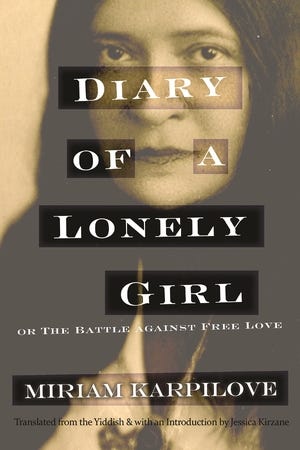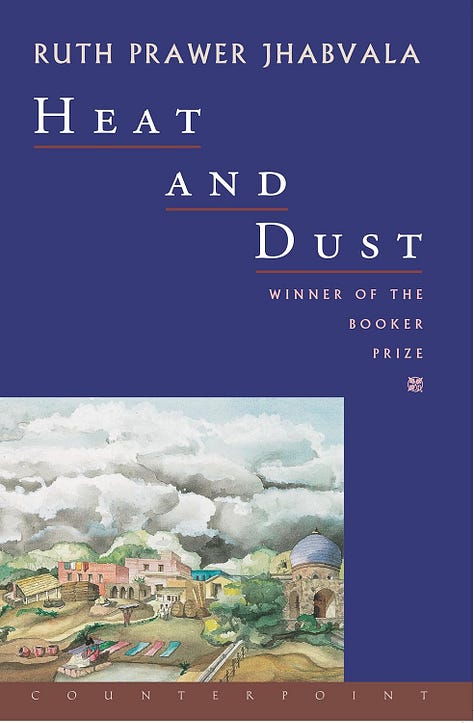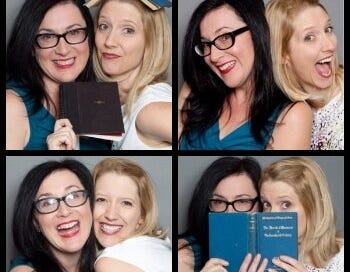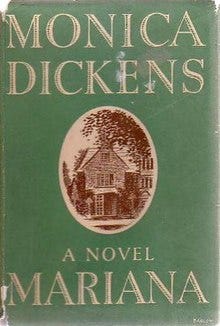Finding Lost Voices: Introducing Your Next Go To Podcast, Lost Ladies of Lit
A weekly email that brings back the voices of those who have been forgotten or misremembered.
This week, I’ll be switching gears to showcase The Lost Ladies of Lit: a podcast that brings back books written by women who have been forgotten. Once a month I’ll take a break from my regular posts to interview people who are fighting to bring back lost voices.
Q: Hi Lost Ladies of Lit! I’m thrilled to get to share the incredible work you are doing on your podcast with my audience. Could you introduce yourselves?
A: We are Kim Askew and Amy Helmes. We are best friends, longtime writing partners, and the co-producers and hosts of Lost Ladies of Lit, a podcast dedicated to forgotten women writers.
Q. Great to get to talk with you, today! Can you tell us the origin story of the Lost Ladies of Lit podcast? How long have the two of you known each other, and what brought you together to begin this podcast?
A: We have been friends for more than two decades and originally began writing together in our twenties on a blog about book-to-film adaptations called “Romancing the Tome.” Kim is the “dreamer” of our partnership who always thinks up big ideas for us to pursue. Amy is the “pragmatist” who tempers Kim’s bold ambitions with a dose of measured reality. Kim had been saying, “Let’s start a podcast!” for a while, but we had no idea what we might podcast about, so Amy gently humored her with “Sure, sure…” It wasn’t until the spring of 2020 when Covid struck the planet that our podcast finally took shape. Masked-up and from a distance, Kim dropped off an armload of books at Amy’s house to help her pass the time. Later, Amy stared at the spines on that stack of borrowed books and realized they were all written by women authors from the past whom she’d never heard of. “That’s it!” Amy realized. “This is what our podcast is going to be about.” Amy texted Kim and they instantly knew they had hit on the perfect subject matter. In our first episode in the fall of 2020, we featured one of the titles from that original stack of books: Monica Dickens’ Mariana. (Monica Dickens was Charles Dickens’ great-granddaughter, and while she, too, wrote bestsellers, her name completely fell by the wayside.)
Q:. What a great origin story! I can’t wait to read more about Monica Dickens and to listen to your episode about her! Why do you feel this work is important?
A: Amy can remember reading E.M. Delafield’s Diary of a Provincial Lady and being gobsmacked that this hilarious and completely relatable gem was read by so few people.
There are so many neglected treasures out there, and it always made us a little sad to finish a great old book and put it back on the shelf (or return it to the library stacks) knowing it would likely go on collecting dust, all the while thinking, “More people should be reading this!”
Most of these books were wildly popular in their day, but they are also books that still feel so contemporary and relevant today. We believe the “lost ladies” we cover on the podcast would be proud of the work we are doing to keep their legacies alive, and it’s our emotional connection to these forgotten female authors that drives us. We fall a little in love with each “lost lady” we discover, and we hope our listeners have that experience, too!

Q: Of all of the books you’ve highlighted, what are your favorites and why?
A: Don’t make us choose! We love them all for different reasons, but among our favorites are: Constance Fenimore Woolson (a best gal pal of Henry James — her novel, Anne, outsold his and reads like a mash-up of Little Women, Jane Eyre, The Age of Innocence, and Great Expectations with a thrilling Sherlock Holmes story thrown in, too!); Miriam Karpilove’s Diary of a Lonely Girl (think “Bridget Jones” but told by a Jewish immigrant living in 1918 New York City); Ruth Prawer Jhabvala’s Heat and Dust (not only did it win a Booker Prize in 1975 but this author wrote nearly every one of the Merchant-Ivory films we all know and love!). Of course, we’d be remiss not to also mention Charmian Kittredge London and Janet Lewis, both of whom we were lucky enough to learn about from you, Iris! We could go on all day about others, but you’ll just have to check out our podcast for more!



Q: What books do you hope to cover in the future?
A: The more we embark on this project the more we realize how many authors’ stories we have to explore. We’re currently keeping a spreadsheet for potential future “lost ladies” and we’ve got hundreds more on our list, which keeps on growing. We tend to cover a lot of women authors from the early-to-mid 20th century, so we’d love to branch out to explore more diversity in terms of both culture and eras. That said, if we connect with a novel and find an author’s life story compelling, we’re open to just about anyone!
Q: What do you see in the future?
A: We try to feature books that are readily available to today’s readers, but alas many are out of print. Down the road, it would be fun and fulfilling to use the Lost Ladies of Lit brand to bring some of these authors’ works back into print. In the meantime, we’re so happy publishers like McNally Editions, Persephone Books, Virago, Handheld Press, Boiler House Press, and Cita Press are doing this important work.
That’s it for this week’s interview. To subscribe to Lost Ladies of Lit podcast, visit: https://www.lostladiesoflit.com/ Next week, I’ll be back with a post about a lost voice you’ll want to learn more about! In the meantime, if you haven’t had a chance to subscribe, please do so! I’ll be sending out a reading guide about Stoddard’s The Morgesons to all paying subscribers very soon!








Iris! Thanks so much from bringing the Lost Ladies of Lit onto my radar. I hope to be able to scavenge through the work these brilliant women have produced, as well as the work of all that lost listerature!
Amy H. "Gobsmacked" really?! Never heard of these 'writers' and after reading about the vicar's wife, I understand why. :) MJ